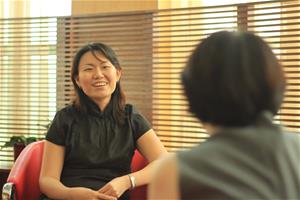ISS alumnus Danny Koh explains how he landed his job as Senior Field Engineer at BT, thanks to personalised career services for NICF unemployed course participants.
When Danny Koh decided to up-skill with a three-day NICF-ITIL® Foundation Certificate in IT Service Management course at ISS earlier this year, he had not foreseen career coaching or a job placement coming as part of the deal. Danny had been exploring job openings in the infocomm sector at that time.
“I think it’s wonderful how ISS and the Singapore Workforce Development Agency (WDA) have come together to provide career coaching for unemployed NICF course participants,” Danny enthused. The National Infocomm Competency Framework, or NICF, is developed by WDA and the Infocomm Development Authority of Singapore (IDA) in close collaboration with the infocomm industry. It aims to widen and deepen the capabilities of infocomm professionals and those seeking a career in this field by guiding their career development against standards agreed by the industry and companies. ISS, as a strategic NICF Continuing and Education Training (CET) Centre appointed by WDA, plays a crucial role in offering a comprehensive array of NICF courses as well as providing employment advisory and placement.
Looking back, Danny could see how career coaching provided by ISS had cut short his job search process. “What I liked most about it was the chance to evaluate my strengths and abilities against my career goals.” He also attributed his success to the pointers he received on drafting effective resumés.
Now a Senior Field Engineer with BT Global Services, a division of UK’s telco operator BT Group, Danny said, “I really urge those who qualify to take advantage of ISS’ career services.”
Building connections through ISS
Mr Andy Chang, Manager, Career Services at ISS, agreed. “To give unemployed NICF course participants a leg-up in Singapore’s competitive infocomm industry, we’ve evolved our career workshops into personalised coaching sessions. We also organise bi-yearly career fairs, and offer job placements through our base of government partners and prospective employers,” he said.
Today, ISS provides a comprehensive suite of career services to better equip full-time post-graduate students and unemployed short courses participants on career development and planning skills. The intent is to enhance employability in the infocomm industry. In fact, career preparation is included as part of NUS-ISS post-graduate programmes.
The value of career coaching
While ISS short courses are popular with mid-careerists and industry practitioners, career coaching has strengthened the ability of these individuals to elucidate their personal and professional objectives
Affirming this was Ms Heng Teng Teng, an independent career coach with ISS since 2011. “The personalised sessions at ISS cater for professional career guidance in an informal but systematic way. I also work with clients on practical interview techniques, and encourage them to bring along their resumé for critique and discussion.”

Ms Heng Teng Teng, Career Coach
She added that employers today are increasingly social media-savvy with their recruitment efforts. “Clients often feedback how our sessions help them unleash the full potential of online networking during their job search,” she said.
Changing perceptions
As Teng Teng observed, mid-careerists tend to be less forthcoming about career management compared to fresh graduates. For example, many do not even have a CV until they need a job. “Some aren’t really open to the idea of career coaching, they just want the job,” she revealed.
“It’s fair to expect some scepticism, especially among those who have been without jobs for close to a year, or are unable to secure job interviews,” she shared. Yet, this could be changing as more candidates turn to the personalised career coaching sessions offered at ISS to fine-tune their career preparations.
Most participants, including Danny, have described the sessions as an “eye-opener”. Many found the insights on employment trends, and the chance to bounce ideas with a career service professional, helpful. Others cited greater confidence in resumé writing or attending job interviews.
Andy shared, “We continue to keep tabs with some alumni members even after a year, even though most typically find a job within three to six months. Those who find jobs faster tend to make greater efforts to improve their CV and networking skills after the ISS career coaching.”
This article is first published in NUS-ISS quarterly e-newsletter, Issue 5 (Jan-Mar 2014).